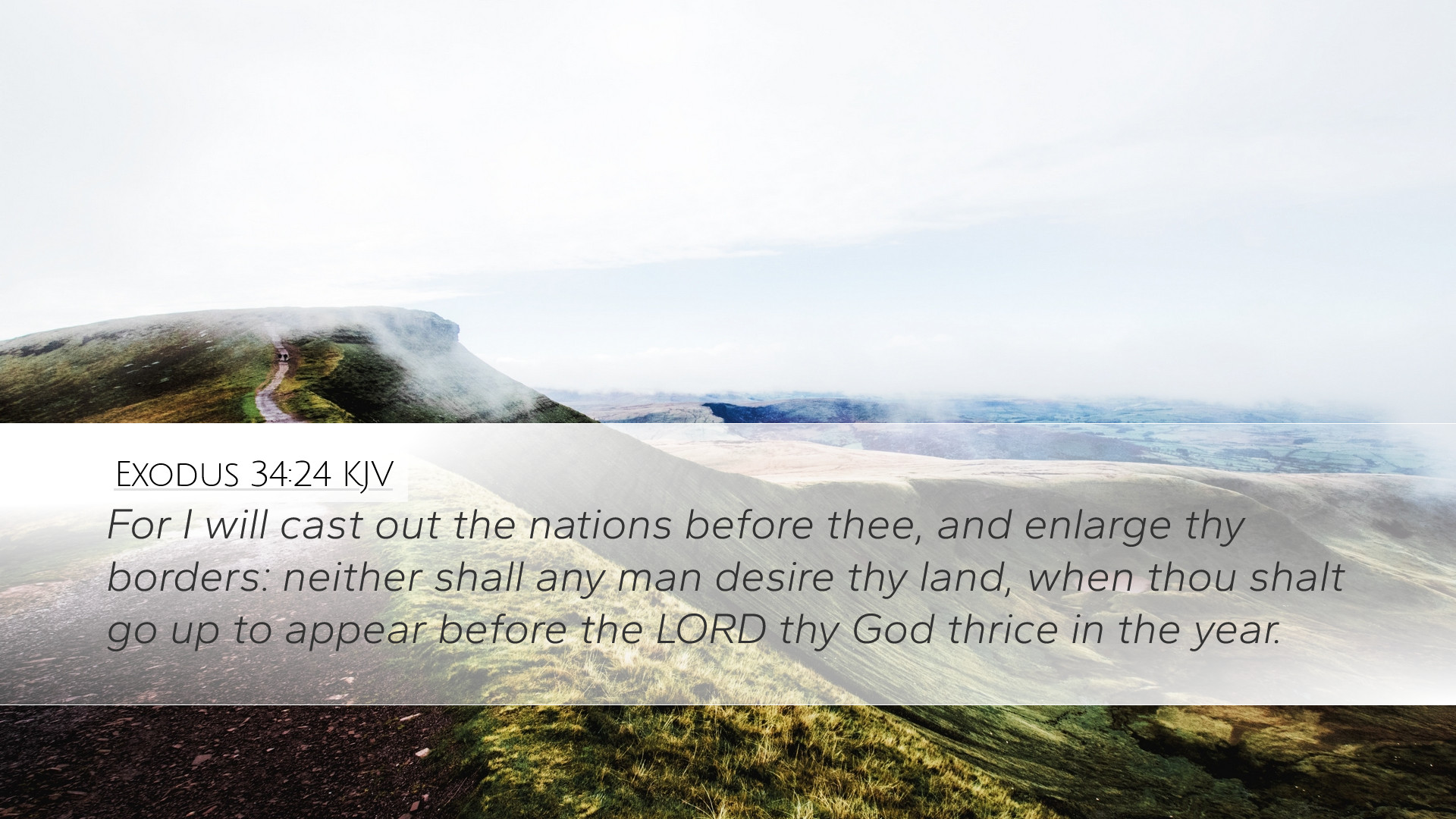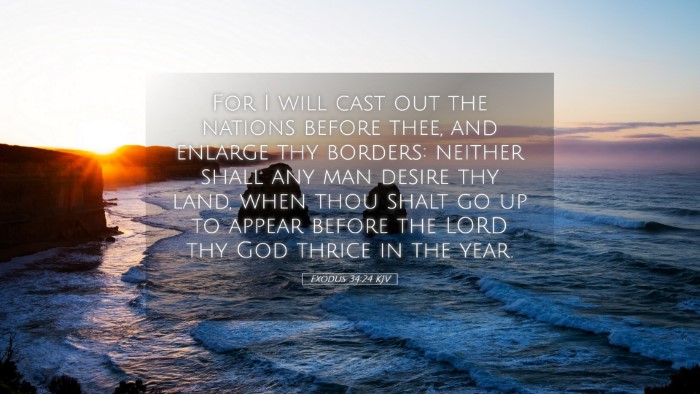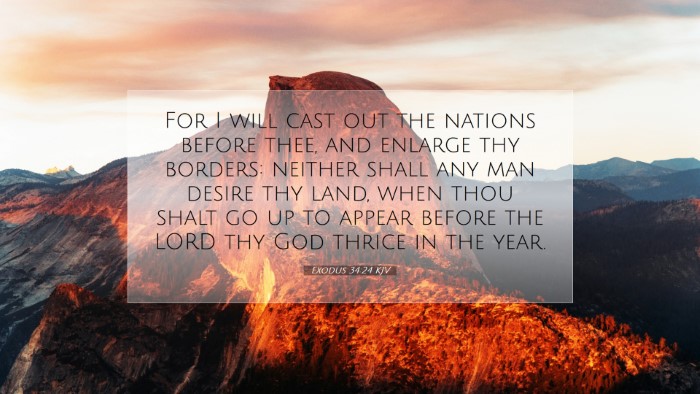Commentary on Exodus 34:24
Verse: “For I will cast out the nations before thee, and enlarge thy borders: neither shall any man desire thy land, when thou shalt go up to appear before the Lord thy God thrice in the year.” (Exodus 34:24)
Introduction
This verse sits at the core of God's promise to Israel, revealing His divine protection, commitment, and the conditions required for communal worship. This commentary seeks to unpack the theological, historical, and practical implications of this scripture, enriched by insights from esteemed public domain commentaries.
The Divine Promise
In this passage, God reassures His people that He will drive out the nations before them, thereby granting them a land that is secure and prosperous. This divine promise is characterized by several key themes:
- Divine Assurance: God’s commitment to His people reflects His sovereignty and faithfulness. As noted by Matthew Henry, "the Lord does not abandon His covenant people." He actively engages in their success and wellbeing.
- Territorial Expansion: The promise of enlarged borders symbolizes not only physical expansion but also the increase of God’s blessing upon His people. Albert Barnes emphasizes that this expansion is contingent upon their obedience and faithfulness to God’s directives.
- Protection and Security: The assurance that “neither shall any man desire thy land” communicates the divine security surrounding the Israelites during their worship and pilgrimage. This indicates God’s powerful protection over them during their sacred gatherings.
Conditions for Divine Blessing
While God promises protection and prosperity, He also outlines expectations for His people, particularly concerning worship. The requirement to "appear before the Lord thy God thrice in the year" serves as a crucial reminder of Israel's duty to remain faithful in worship.
- The Importance of Worship: The directive emphasizes corporate worship as fundamental to the life of the community. Adam Clarke indicates that such communal gatherings reinforce the identity of the Israelite people and their relationship with God.
- Regularity of Festivals: The feasts of Passover, Pentecost, and Tabernacles were not merely cultural traditions but vital covenantal affirmations. They served as opportunities for both thanksgiving and remembrance of God’s past deliverances.
Theological Reflections
This verse calls attention to the interplay between divine sovereignty and human responsibility. God, in His grace, assures Israel of protection and success; however, this is intertwined with their obligations.
- God’s Sovereignty: Biblical scholars agree that God’s promises are unfaltering. The historical context reveals that God’s protection fulfills His covenant with Abraham, Isaac, and Jacob.
- Human Responsibility: The reiterated call to appear before the Lord underscores the necessity of communal loyalty to God. Matthew Henry reminds readers that worship should always be prioritized, shaping not only individual spirituality but also communal identity.
- Consequences of Disobedience: The absence of worship could incite divine displeasure, leading to loss of blessings. Thus, faithfulness in worship is essential for experiencing God's promises.
Application for Today’s Believers
The relevance of Exodus 34:24 extends beyond a historical context; it speaks profoundly to contemporary believers:
- Community Worship: Regular participation in communal worship is essential for spiritual nourishment and corporate identity. Engaging in community feasts and gatherings builds a united front in faith.
- Trust in God’s Promises: Believers are reminded of God’s unchanging nature. His promises provide them with hope, even amid uncertainty. Acknowledging God's faithfulness fosters confidence in His providence.
- Emphasizing Holiness: Just as the Israelites were called to separate themselves from other nations, today’s believers are encouraged to pursue holiness and righteousness in their lives.
Conclusion
Exodus 34:24 encapsulates the essence of God’s relationship with His people—marked by sovereign grace, communal responsibility, and the necessity of remembrance through worship. Believers are continually invited into a deeper understanding of their identity and purpose through their covenant relationship with God, affirmed in the promise of His ongoing presence and protection.


